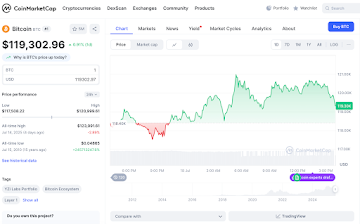18.07.2025 14:08
A groundbreaking $3.5 billion Bitcoin transaction has emerged, spearheaded by Adam Back, a prominent cryptographer long considered a potential candidate for the identity of Satoshi Nakamoto. This significant development sees Back publicly launching the Bitcoin Standard Treasury (BSTR), a move that marks his first foray into the mainstream spotlight. The deal involves a merger with Cantor Equity Partners I (CEPO), a special purpose acquisition company (SPAC), resulting in the addition of 30,021 Bitcoin to its balance sheet. This acquisition will catapult BSTR into the top four public Bitcoin holders globally, behind industry titans like Strategy and Tesla.
Details of this unprecedented transaction reveal a unique financing structure. The substantial Bitcoin holdings consist of 25,000 BTC contributed by founding shareholders under the guidance of Blockstream Capital, alongside 5,021 BTC secured through a groundbreaking private investment in public equity (PIPE) offering – the first ever denominated in Bitcoin. Furthermore, the financial package includes a substantial $1.5 billion in fiat PIPE funding, a $200 million contribution from the SPAC itself, and a blend of convertible notes and preferred equity. This represents a significant funding milestone, exceeding previous SPAC treasury raises by a remarkable 2.1 times.
Beyond the sheer magnitude of the transaction, the involvement of key players adds another layer of significance. The SPAC’s connection to Cantor Fitzgerald, a major financial firm headed by Howard Lutnick, and the participation of his son, Brandon, have drawn considerable attention within the cryptocurrency community. This involvement, coupled with HBO's portrayal of Back as the most likely candidate for the elusive Satoshi Nakamoto, makes this deal particularly noteworthy. The strategic move by Back suggests a shift towards a more structured and secure approach to managing his Bitcoin holdings, effectively transferring some assets into institutional control. This transaction signals a potential paradigm shift in how significant Bitcoin holdings are managed and regulated within the financial sector.










